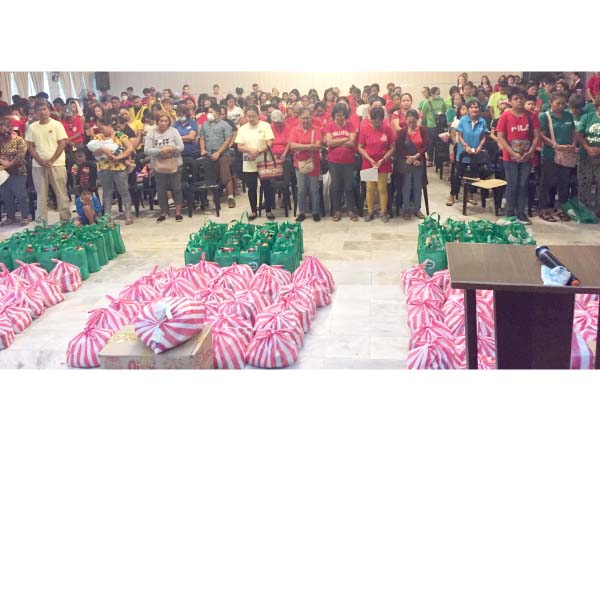
Before the new coronavirus reached our shores, and before Taal Volcano erupted on Jan. 12, the Tsinoy (Tsinong Pinoy, who are Filipinos of Chinese ancestry but born and raised in the Philippines) community launched the Alay Puso outreach program for the poorest and most marginalized communities.
This offering of giving was a significant dual celebration of the Chinese Lunar New Year and the Feast Day of Saint Valentine.
Both are celebrations of love and compassion for one another, which rightfully embody inter-faith and inter-cultural dialogue and, more importantly, an act of hope, inspiration and giving to persons and communities ostracized by society.
Kaisa Para Sa Kaunlaran Inc., the Filipino-Chinese Friendship Association (菲中友好協會) and Motortrade Life and Livelihood Assistance Program got together with the AKAP Pamilya of the Diocese of Novaliches to launch Alay Puso.
The Alay Puso packages composed of five kilograms of rice, canned goods and coffee sachets from Ong Hao Teng (chief executive officer of Motortrade and president of FCFI), and a pair of brand new shirts from Dr. Tan Cho Chiong for 500 families.

Another humanitarian partner organization, Alagang Kapatid Foundation Inc., added donation packs of Anlene white coffee to AKAP Pamilya.
AKAP, which stands for Abot Kamay Alang-alang sa Pagbabago (Reaching out for New Life), is a ministry of the Diocese of Novaliches formally established by then Bishop Antonio Tobias, D.D. in June 2017, in response to the urgent needs of urban poor communities significantly affected by the government’s campaign against illegal drugs.
From the onset, Kaisa has been a key partner of AKAP Pamilya and SIBOL (Supporting Initiatives for Bridging Orphans Lives) and has helped expand the program’s partnership with the Tsinoy community.
Kaisa continues to support educational assistance programs for poor orphaned students and expresses its solidarity with AKAP Pamilya volunteers.
AKAP Pamilya has coordinated with the Restorative Justice Ministry and AKAP Buhay to invite families affected by the war on drugs in north Caloocan City and north Quezon City.
One hundred former drug users, under a community-based recovery program (AKAP Buhay), and 30 families of newly released prisoners under the Restorative Justice Ministry were included among the 500 family-beneficiaries.
The majority of the recipients are orphaned families under AKAP Pamilya, including dedicated volunteers who manage the program in their parishes. The well-organized activity involving family recipients coming from 10 communities was made possible by the efforts of all counterparts and partners.
